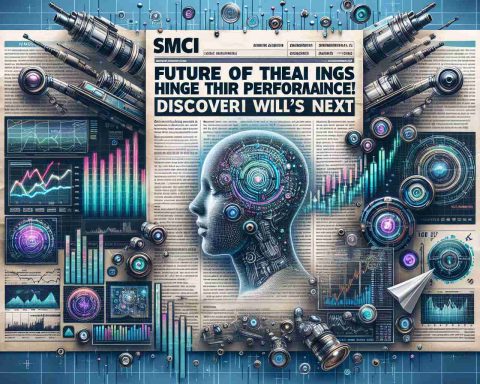The Quantum Revolution Begins in Boulder
A groundbreaking facility for quantum technology has just opened in Boulder, Colorado, poised to reshape the landscape of computing and innovation. Scientists are now working with particles smaller than atoms, paving the way for devices and systems that are faster and more accurate than conventional technology allows.
Colorado’s Governor, Jared Polis, expressed confidence in the transformative potential of this technology for consumers worldwide. He highlighted that Colorado is already home to approximately 3,000 jobs in the quantum sector, with projections indicating this number could surge to hundreds of thousands in just a decade. Notably, many of these positions will not require advanced degrees, opening doors for a wide range of Coloradans.
The newly inaugurated 13,000-square-foot Quantum Incubator is the result of a $74 million investment in refundable tax credits by the state. It represents a collaboration among esteemed institutions, including the University of Colorado Boulder, Colorado State University, and the Colorado School of Mines. The facility aims to nurture startups and innovators, providing them with the resources needed to transform quantum technologies into practical applications.
Experts are excited about immediate advancements beyond computing, with the potential for innovations such as disease detection through breath analysis and secure data transmission. Despite some skepticism from tech leaders regarding the timeline for mass adoption of quantum computing, Boulder is set to be the cradle of tomorrow’s groundbreaking technologies.
The Quantum Revolution Begins in Boulder
The recent inauguration of a state-of-the-art quantum technology facility in Boulder, Colorado, marks a significant milestone in the realm of advanced computing and technological innovation. As scientists delve into the intricacies of particles smaller than atoms, the implications of quantum technologies extend far beyond traditional computing. This article explores how advancements in quantum technology can influence the environment, humanity, the economy, and ultimately, the future trajectory of our world.
Environmental Impact
Quantum technology holds promise for enhancing various environmental initiatives through improved data analysis and resource management. For instance, quantum computing can significantly optimize energy systems, facilitating the transition toward renewable energy sources by improving the efficiency of energy grids. This capability can lead to reduced carbon emissions and a lesser reliance on fossil fuels, aligning with global sustainability goals. Researchers may also develop quantum sensors capable of detecting pollution levels at unprecedented sensitivity, enabling timely interventions to protect ecosystems.
Humanity and Health
One of the most exciting prospects of quantum advancements is their potential impact on healthcare. The ability to conduct accurate disease detection using simple breath analysis can revolutionize diagnostics at a fundamental level. Early detection of diseases such as cancers or respiratory conditions could lead to timely treatments and improve survival rates, enhancing the overall quality of life. Such innovations can also bridge healthcare disparities, as simpler testing methods could be deployed in underserved communities, ensuring equitable access to critical health information.
Economic Revival and Opportunities
The quantum incubator in Boulder is a catalyst for economic revitalization, creating anticipated job growth that could transform local economies. As the quantum sector expands, it is projected to generate hundreds of thousands of jobs, many of which will be accessible to individuals without advanced degrees. This democratization of technology-related employment opportunities can help alleviate economic inequality, enabling a diverse workforce to engage in emerging industries. Additionally, as innovations stemming from quantum technology begin to take hold, new markets will emerge, leading to widespread economic diversification and stability.
Future of Humanity
The impact of quantum technologies on society is profound, affecting how we harness information, solve complex problems, and interact with each other. As quantum innovation proliferates, it may foster a new era of collaboration and interconnectedness among nations, driven by shared advances in technology. Moreover, the ethical implications of such powerful technology will necessitate robust dialogues about governance and regulation, ensuring that advancements are utilized responsibly for the greater good.
In summary, the opening of the quantum technology facility in Boulder is not just the beginning of a new chapter in computing; it symbolizes a turning point for humanity as we navigate the complex challenges of the 21st century. The intersections of technology with the environment, healthcare, and the economy will shape our global future, fostering potential solutions that enhance life on Earth. By embracing the quantum revolution, we stand on the cusp of a transformative era with the power to create a more sustainable, equitable, and interconnected world for generations to come.
Boulder: The New Hub of Quantum Innovation and Technology
The Quantum Revolution Begins in Boulder
Boulder, Colorado, has emerged as a pivotal location in the realm of quantum technology with the opening of a state-of-the-art facility that promises to redefine the future of computing and technological innovation. The Quantum Incubator spans 13,000 square feet and stands as a testament to a significant $74 million investment by the state, primarily through refundable tax credits. The facility brings together contributions from esteemed institutions including the University of Colorado Boulder, Colorado State University, and the Colorado School of Mines, setting the stage for a collaborative environment aimed at nurturing startups and innovators in the quantum space.
# Features of the Quantum Incubator
The Quantum Incubator is specifically designed to support the advancement of quantum technologies, providing resources such as:
– Collaborative Workspaces: Open and flexible spaces that encourage teamwork and innovation.
– Access to Advanced Equipment: Facilities equipped with the latest technology to facilitate experimentation and development.
– Networking Opportunities: A platform for entrepreneurs to connect with industry experts, mentors, and potential investors.
# Use Cases of Quantum Technology
The implications of quantum technology extend far beyond computing. Here are some anticipated use cases that could revolutionize various industries:
– Healthcare Innovations: Potential applications in disease diagnosis through advanced techniques such as breath analysis.
– Secure Communication: Enhanced data security methods leveraging quantum encryption, making data transmission nearly impossible to intercept.
– Enhanced Problem Solving: Improved algorithms for complex problem-solving across various sectors, including finance and logistics.
# Pros and Cons of Quantum Technology
Pros:
– Higher speeds and efficiencies in data processing.
– Potential to solve problems unmanageable by classical computing.
– Revolutionary applications in various fields, fostering innovation.
Cons:
– Significant barriers to entry, including the need for specialized knowledge and resources.
– Skepticism regarding the timeline for widespread deployment and utility of quantum computing.
– Uncertain regulatory and ethical considerations surrounding the new technology.
# Market Analysis and Foreseen Trends
The quantum technology market is estimated to expand rapidly, with projections indicating that jobs in the sector in Colorado alone could increase from approximately 3,000 to hundreds of thousands in the next decade. This growth is not limited to high-degree professionals; many roles will be accessible to individuals without advanced education, democratizing access to opportunities within this cutting-edge field.
# Innovations and Future Predictions
With the opening of the Boulder facility, several innovations are on the horizon:
– Quantum Software Development: Expected advancements in the creation of software specifically designed for quantum computing applications, increasing the usability of quantum devices.
– Interdisciplinary Collaboration: The blending of experts from various fields (e.g., physics, computer science, engineering) is anticipated to drive unexpected breakthroughs.
– Integration with Classical Systems: Future technologies will likely focus on integrating quantum solutions with existing classical systems to enhance overall efficiency.
# Conclusion
As Boulder solidifies its status as the nexus of quantum innovation, the world watches keenly. The collective effort of academia, state government, and visionary entrepreneurs will undoubtedly lead to exciting developments in computing and beyond. For more insights into the quantum technology landscape and updates on Boulder’s transformative endeavors, visit University of Colorado Boulder.



















